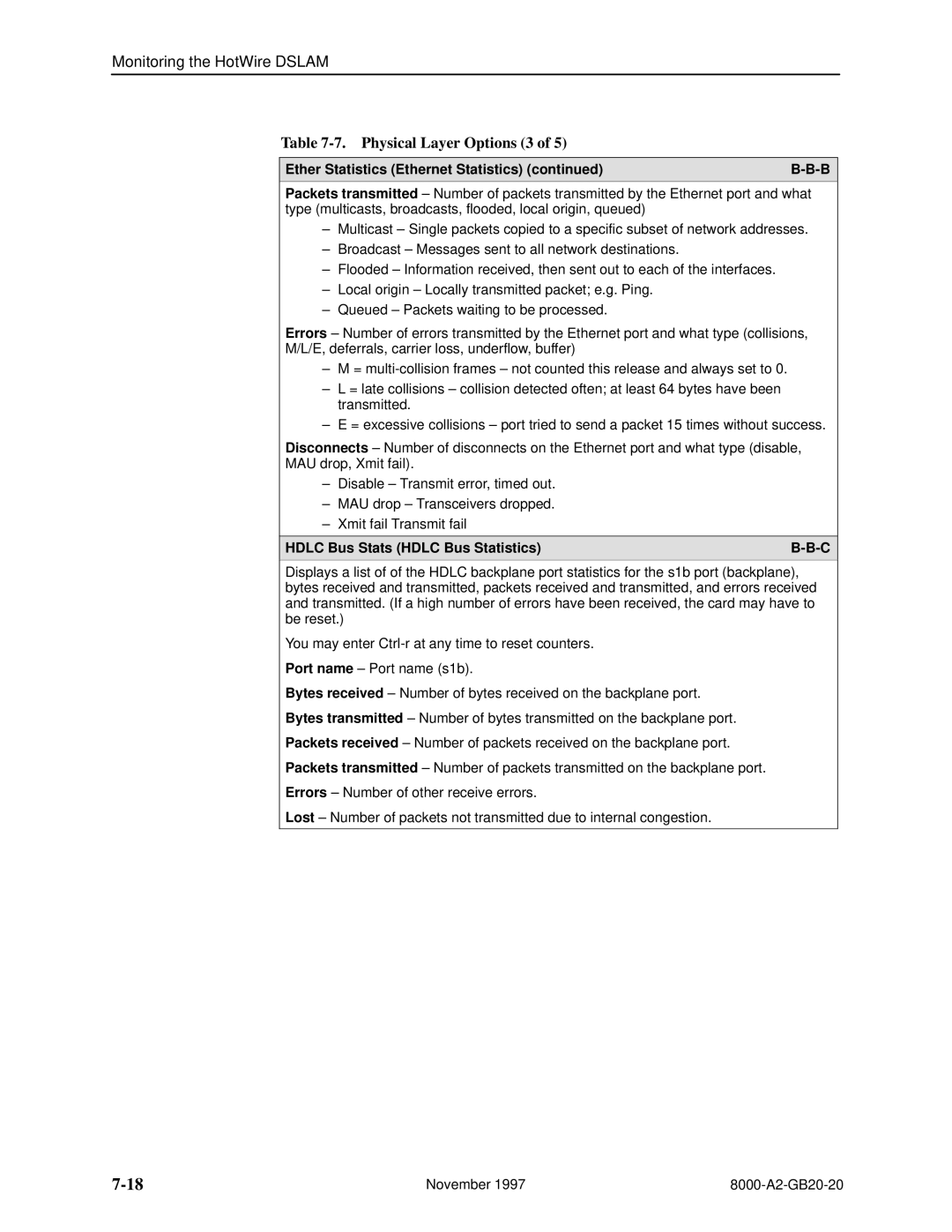
Monitoring the HotWire DSLAM
Table 7-7. Physical Layer Options (3 of 5)
Ether Statistics (Ethernet Statistics) (continued) | |
|
|
Packets transmitted ± Number of packets transmitted by the Ethernet port and what type (multicasts, broadcasts, flooded, local origin, queued)
±Multicast ± Single packets copied to a specific subset of network addresses.
±Broadcast ± Messages sent to all network destinations.
±Flooded ± Information received, then sent out to each of the interfaces.
±Local origin ± Locally transmitted packet; e.g. Ping.
±Queued ± Packets waiting to be processed.
Errors ± Number of errors transmitted by the Ethernet port and what type (collisions, M/L/E, deferrals, carrier loss, underflow, buffer)
±M =
±L = late collisions ± collision detected often; at least 64 bytes have been transmitted.
±E = excessive collisions ± port tried to send a packet 15 times without success.
Disconnects ± Number of disconnects on the Ethernet port and what type (disable, MAU drop, Xmit fail).
±Disable ± Transmit error, timed out.
±MAU drop ± Transceivers dropped.
±Xmit fail Transmit fail
HDLC Bus Stats (HDLC Bus Statistics) | |
|
|
Displays a list of of the HDLC backplane port statistics for the s1b port (backplane), bytes received and transmitted, packets received and transmitted, and errors received and transmitted. (If a high number of errors have been received, the card may have to be reset.)
You may enter
Port name ± Port name (s1b).
Bytes received ± Number of bytes received on the backplane port.
Bytes transmitted ± Number of bytes transmitted on the backplane port.
Packets received ± Number of packets received on the backplane port.
Packets transmitted ± Number of packets transmitted on the backplane port.
Errors ± Number of other receive errors.
Lost ± Number of packets not transmitted due to internal congestion.
November 1997 |
